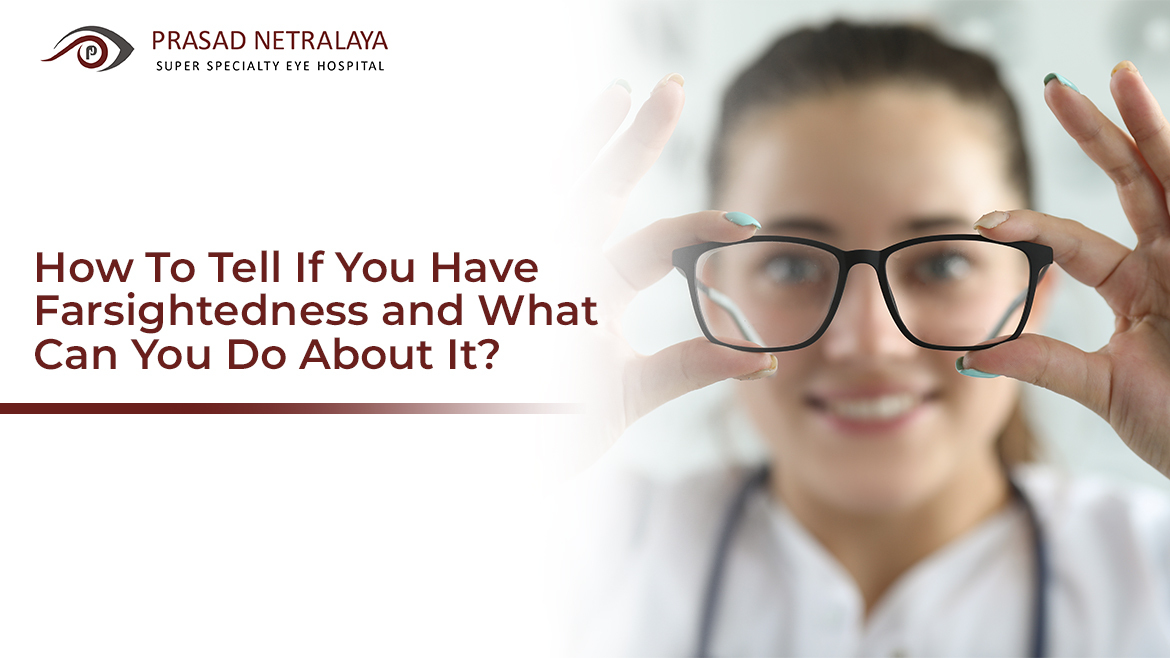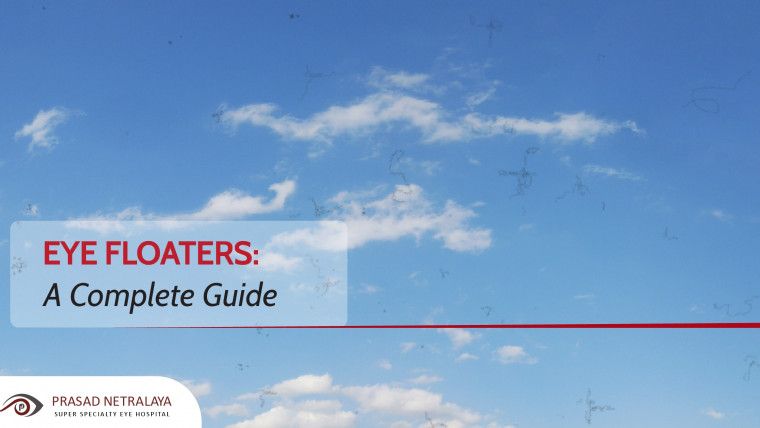Are you tired of straining your eyes to read restaurant menus? A good portion of our population experiences this problem, so you’re not alone. It’s inconvenient and frustrating to have blurry vision.
If you’re farsighted, there’s good news: it’s treatable. You can try simple eye exercises or natural remedies to alleviate it.
In this article, we’ll look at how to check for farsightedness and some ways of treating it.
Let’s begin.
Table of Contents
What Does Being Farsighted Mean?
Being farsighted means not being able to focus your eyesight on nearby things. It’s characterized by a constant strain on your eye muscles without any discernible effect on vision.
The constant effort to correct farsightedness can lead to headaches and eye fatigue.
How To Check for Farsightedness (Hyperopia Diagnosis)?
You can check for farsightedness with a basic eye exam. This includes a refraction assessment (checking your eye power) and an eye health exam.
Some of the common symptoms of being farsighted are as follows:
- Blurry vision when reading
- Holding things farther away from your eyes to see them more clearly
- Fatigue
- Headaches.
How You Can Treat Farsightedness
The lack of obvious signs is a significant issue in treating farsightedness. As a result, people typically wait for a long time before seeking treatment.
As soon as the symptoms are detected, people use corrective glasses or contact lenses to improve vision. However, these options seldom aid in addressing the root of the issue.
Refractive faults can be temporarily treated by wearing glasses or contact lenses. They alleviate symptoms for a while but do nothing to fix the underlying problem.
The inability to see nearby items is the root of the issue. If your eyes are healthy, as they often are in younger individuals, you may be able to self-correct the issue. However, as time passes and further strain is placed on the eyes, your eyes’ ability to recover themselves weakens.
Aside from glasses, you’ll need to find other ways to maintain good eyesight as you age.
Feed Your Vision With Nutrients
What does your food intake look like? The first step in treating farsightedness is to check if your food provides adequate vitamins and minerals for your eyes.
Like all other organs in your body, the eyes require a balanced diet rich in vitamins and minerals. Antioxidants, fatty acids, and zinc are some of the essential nutrients your eyes need.
In addition, your eyes and overall blood circulation will benefit from a daily water intake of at least two litres.
Resting
Besides getting enough sleep, rest your eyes periodically between work, so you don’t overwork them.
If your legs become fatigued, take a seat. You put your arms down for a little break if they’re fatigued. However, it is common practice to keep utilizing fatigued eyes.
Taking periodic breaks from using your eyes is recommended. For instance, if you’re doing a lot of work on a computer, it’s important to take a break every so often.
Use the 10-10-10 rule as a guide. Try to glance away from the screen for ten seconds for every ten minutes you spend staring at it. Focusing on an object in the distance instead of up close will help your eyes unwind.
Exercises For Farsightedness
Here are some effective eye exercises to help you reduce the effects of farsightedness.
William Bates Method of Eye Exercises
In the early 20th century, American ophthalmologist Dr William Bates, who gained an international reputation, developed exercises for farsightedness.
First, warm your hands by rubbing them together. Then, cover your eyes completely with your palms so you can’t see anything. When placing your palms on your eyes, be careful not to squeeze your eyelids shut. Relax, breathe deeply, and focus on the darkness. Do this for 10 minutes a day.
Also, Dr Bates recommended swing practice. This practice requires you to look far away. Any distant object, such as a tree or a chair across the room, will do. Next, focus intently on the target while swaying from side to side. It’s essential to blink at the same time to keep your eyes moist and clean.
Blinking
Humans have an innate, constant, and ubiquitous habit of blinking. There are times when we don’t blink quite as often as we should. We accomplish so much less when focusing on a television or computer screen. Sometimes it’s hardly noticeable, yet that’s enough to trigger symptoms like dry eye syndrome and eye strain.
In addition to rehydrating the eyes, blinking provides a brief rest from eye overuse, reducing the risk of strain.
Make an effort to blink frequently if you spend a lot of time staring at a screen. Your eyes will be able to rest, and they won’t tire as quickly from staring at a screen.
Roll Your Eyes
Simply rolling your eyes might have a significant positive effect on your eyesight.
Stop what you’re doing, relax, and rotate your eyes clockwise and counterclockwise. Do this for about a minute. The constant lubrication will prevent dryness and reduce fatigue in the eyes.
Also Read : Nearsightedness, Farsightedness, and Astigmatism: How To Know Which One You Are Struggling With?
FAQs
When Does Farsightedness Start?
Farsightedness usually begins after the age of 40. However, diseases like diabetes, cardiovascular diseases, or multiple sclerosis can increase your chances of premature farsightedness.
Are Contact Lenses a Good Option for Farsightedness?
Yes, contact lenses are a good option for farsightedness. It can be used to treat both farsightedness and nearsightedness.
Can Farsightedness Be Cured?
Yes, farsightedness can be cured with refractive surgery methods like LASIK. With LASIK, the eye surgeon uses a laser to adjust the curves of your cornea, which corrects farsightedness.
You may correct your farsightedness by including these no-cost, easy-to-implement eye exercises into your everyday regimen. You’ll eventually get to the point where you can pick up a menu without thinking about where your glasses are. These homoeopathic treatments for farsightedness may help you throw away your glasses and contacts for good.
If you’re looking for an accurate farsighted diagnosis or one of the best treatments for eyesight issues, Prasad Netralaya is the clinic for you! You can visit our website to explore the slew of services we offer.
Dr. Vikram Jain, M.S. had his medical training (MBBS) from Kasturba Medical College, Mangalore, India. He did his master’s in Ophthalmic surgery from Kasturba Medical College, Manipal. He currently manages the Glaucoma department of Prasad Netralaya hospital.



